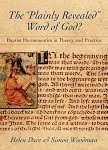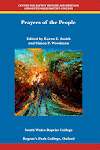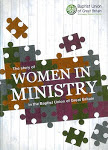A sermon for
Provoking Faith in a Time of Isolation
The Online Gathering of Bloomsbury Central Baptist Church
Sunday 3rd January 2021
Luke 2.41-52
When I was teaching Biblical Studies at Cardiff University,
back in
what feels like a lifetime ago,
there were a couple of memorable occasions
when I
concluded that there was a student in the class
who knew
more about the subject that I was teaching, than I did!
On both occasions, I’m pleased to say, the students in
question
went on to
achieve doctorates in Old Testament studies;
and I’m left with that feeling all teachers get from time to
time,
of
realising that one’s students have exceeded the ability of their teacher.
Well, I guess this is how the teachers in the temple must
have felt
as they
disputed theology with the twelve-year-old Jesus.
Artistic depictions of this scene are often called ‘Christ
among the Doctors’
which of
course takes the word ‘doctor’ back
to its original meaning
of
being one who is qualified to teach,
rather than
its more recent usage
of
referring to medical practitioners.
Now I’m not going to get drawn into the debate
that has
been raging recently on Twitter,
as to whether holders of doctoral level degrees should use
the title Doctor,
or whether
it should be reserved for those who know how to save a life;
except to say congratulations
to Dr Jill
Biden and her husband on their new roles.
But whilst we’re exploring the origins of words,
I do note
that not only does the title ‘Doctor’
have
a historic meaning which underlies its current use,
but so also
does the academic award of PhD.
These days, you can get a PhD in almost any subject,
from
Science, Technology, Engineering and Mathematics,
to English
Literature, Modern History, and of course Theology.
But the origins of the PhD degree, the Doctorate in
Philosophy,
lie in the
medieval church,
where it was an award granted to those
who had
demonstrated excellence in philosophy,
the ‘love
of wisdom’.
This word ‘philosophy’ is itself a joining together of two
Greek words,
phileo, meaning to love,
and sophia, meaning wisdom.
So philosophy
means, literally, the ‘love of wisdom’,
and a
doctor of philosophy
is a
teacher of the love of wisdom.
Interestingly, this combination word philosophy
actually
only occurs once in the New Testament,
in Paul’s
letter to the Colossians (2.8),
where it describes those who were so in love with the idea of wisdom,
that they
were falling out of love with Jesus.
But the words, phileo
and sophia, love and wisdom, both
occur many times,
and are
clearly presented as attributes
to which
followers of Jesus should aspire.
We are called to love, and we are called to wisdom.
But these are not neutral terms,
we can love
the wrong things,
and we can
be wise in the wrong kind of wisdom.
So to narrow it down a bit,
the
followers of Jesus are called to love God,
and
to love our neighbour (see Mark 12.30-31
//s),
and they
are called to grow in the wisdom of God.
And our story for this morning from Luke’s gospel,
of the
young Jesus, among the doctors in the Temple,
challenges
us to think about wisdom, about sophia,
and how we can follow Christ’s example
of growing
in wisdom as the years go by.
Significantly, when Jesus enters the temple,
he is still
officially a child.
The age of maturity for Jewish men in that period
was the age
of 13,
and Luke specifically tells us that Jesus was only 12.
Partly, this may be because Luke really likes the number 12,
it’s
symbolic for him of God’s continuing and ongoing revelation,
so the 12 tribes of Israel are echoed in Luke by the 12
apostles,
and his
story of Jesus in the Temple at the age of 12
puts Jesus symbolically at the
intersection
between
historic Judaism
and
the new relationship with God that Jesus was bringing into being.
But there’s something important to notice here,
which is
that Jesus is not disputing with the
doctors in the temple.
He’s learning from them.
This isn’t some know-all wunderkind
coming in
and showing the establishment the error of their ways.
There’s no hint here of replacement theology,
with Jesus
supplanting the wisdom of Israel.
Rather, Jesus listens, and asks:
he is a
student of his heritage,
learning
from those who are themselves lifelong students of wisdom.
Within the Jewish tradition,
wisdom was
more than a concept, more than an idea.
Wisdom is sometimes presented in the Hebrew Scriptures
personified
as a woman who people can relate to,
who they
can get to know (Prov. 8),
and those who live alongside Wisdom for many years
can
themselves become wise.
Famously, Solomon’s request to God
was not for
riches or power, but for Wisdom (1 Kings 3.1-15, 4.29-30),
as he realised that wisdom was a far greater gift,
than any
other earthly reward.
So here, in Luke’s gospel, we meet Jesus,
a child on
the edge of adulthood,
listening and questioning, not lecturing or teaching,
growing in
wisdom as he grows in years.
And reading this passage today,
it’s
difficult not to think of the way
that
the education of our current generation of children
has
been affected by the pandemic.
From the cancelled exams of last summer,
to debates
over re-opening schools next week;
the tension between public health,
and
education of children, is one of the key issues we face.
And the problem is that education really matters, learning
matters…
even Jesus
needed an education!
We need to hold teachers in our prayers,
as they try
to fulfil their vocation to teach,
whether
in-person or online.
But education and learning are not simply something for
children,
although
the skills to do it well are clearly best learned in childhood.
Rather, we’re all called to a life of learning,
or, to use
another word for it, discipleship.
The very word disciple
means student, follower, a committed learner.
And each of us who considers ourselves disciples of Jesus,
are called
to learn - from Jesus, and from one another.
Some of you have been joining me on Monday evenings over the
last year
for my
lectures on the letters of the New Testament,
and you’re all invited to join me this coming year,
as I’ll be
teaching through the Gospels,
at the rate
of two Monday evenings a month.
If you’d like to know how to join this course,
please drop
me an email and I’ll send you the invitation.
Which brings me to the point of education:
It isn’t
simply the acquisition of knowledge.
This is where the philosophers in Colossae were going wrong,
they were
making it all about the things they could learn.
Learning isn’t wisdom, it’s merely the first step towards
it,
knowledge
isn’t wisdom, it’s merely another step towards it.
The point of education is the ability to use knowledge well,
it is the
acquisition of wisdom.
We each of us have all the knowledge in the world
available
to us on our phones,
but this doesn’t make us wise.
We need wisdom to discern what is good from what is harmful,
we need to
acquire wisdom, to go with our knowledge.
Within the Christian tradition,
the
personified Wisdom of the book of Proverbs
became equated with Jesus himself,
and whilst
this opened the door for the heresy known as Gnosticism,
it also pointed
to wisdom as more than just the accumulation of knowledge.
Just as Jesus grew in wisdom through his encounter with the
doctors in the temple,
so we can
grow in wisdom through our encounter with Jesus.
The Gospels give us Jesus’ words,
and we can
learn these by rote if we want to,
but the key question for Christian discipleship, it seems to
me,
is not ‘what
do you know about Jesus?’,
but ‘what do
you learn from Jesus?’.
If our knowledge of Christ as not transformatory and relational,
then it is
merely information,
which has some value,
but only as
a step towards the true goal, which is wisdom.
The wisdom that comes from Christ
is categorically
different from the wisdom of the world.
Paul captures something of this in a wonderful passage
in his
letter to the Corinthians.
I’ll read it for you now:
1 Corinthians 1.21-25
For since, in the wisdom of God,
the
world did not know God through wisdom,
God decided, through the
foolishness of our proclamation,
to
save those who believe.
22 For Jews demand signs and Greeks
desire wisdom,
23 but we proclaim Christ
crucified,
a
stumbling block to Jews and foolishness to Gentiles,
24 but to those who are the called,
both Jews and Greeks,
Christ
the power of God and the wisdom of God.
25 For God's foolishness is wiser
than human wisdom,
and
God's weakness is stronger than human strength.
In our reading today from Luke’s gospel,
we heard
how Jesus increased in wisdom as he aged,
and that this increased his standing
both in the
world, and in the eyes of God.
And this final coupling of the world and of God,
points to
something significant about the nature of wisdom:
its pursuit is a holy task,
akin to
prayer, or other spiritual disciplines.
Wisdom is learned, in part, through interaction with people,
as Jesus
discovered as he sat with the doctors in the temple,
but it is also acquired through spiritual discipline,
as we learn
to hear God speaking to us through Christ, by the Spirit.
So, as we start another year,
my
challenge to each of us,
is for 2021 to be a year
where we
seek to grow in wisdom.
For some of us this may involve more intentionally making
use
of the
opportunities for increasing our knowledge,
such as enrolling in the Biblical Studies lectures on the
gospels,
revisiting
some of the sermons from recent years through the church website,
or perhaps reading book about an area of faith
where we
would like to learn more…
For others of us, it may be that we need to make a
commitment
to deepen
our relationship with other Christians,
learning
from them as we listen and ask;
so maybe consider joining a house group,
and yes we
are still running these online!
For others of us, it may be
that we
will choose to deepen our engagement
with
the spiritual disciplines,
engaging
more intentionally with our inner world before God.
In all these, of course, balance is necessary:
wisdom is
found in the interweaving
of
knowledge, relationships, and spirituality.
And the goal is always integration,
as we
practice the path of wisdom,
learning
from others in the presence of God.















